Galip M. Selçuk is the Managing Partner and the Head of the Corporate and M&A practice. He has over 20 years’ experience representing Turkish and multinational corporations in high-profile cross-border transactions in a variety of industry sectors. Galip also regularly advises private equity firms on M&A transactions in the local market. In addition to his focus on corporate and commercial law, Galip also advises clients on intellectual property, employment, and data privacy laws.
A graduate of Ankara University Faculty of Law, Galip is a registered trademark and patent attorney. He is a member of the Istanbul Bar Association and is fluent in both Turkish and English. Legal directories rank and recommend Galip for corporate and M&A transactions, restructuring and insolvency and intellectual property.
Given Turkey’s unique geographical and geopolitical placement, which market is likely to be a more common source of overseas work moving forward- The European Union, Russia, or China?
Turkey is a strategic country, both in terms of its geopolitical location and its strong demographics. Its proximity to key markets in Europe and the Middle East, and its affordable and qualified labor force have always been persuasive factors for foreign investors to invest in Turkey.
The European Union, as the largest trade partner of Turkey, has historically had a big impact on the Turkish economy. The majority of the foreign investment in Turkish companies has come from Europe over the recent decades. Considering the COVID-19 outbreak, there may also be a shift by European investors from China to Turkey in order to shorten supply lines. However, Europe will no doubt remain a strong partner for Turkey in the future.
China, on the other hand, may consider Turkey as a manufacturing hub for reaching European markets, especially after the COVID-19 outbreak. Macroeconomic and geopolitical factors make Turkey an ideal manufacturing hub for a variety of industries. Turkey is the number one textile exporter to Europe thanks to its short delivery times, high design capability and trade agreements with the European Union. Chinese manufacturing firms may wish to enter the Turkish market through acquisitions and strategic business partnerships.
A number of international firms are active in Turkey, alongside longer-standing domestic firms. What impact have these cross-border partnerships had on the legal market?
The presence of international firms and cross-border partnerships, as well as anticipated foreign investment inflows in the future will provide law firms with many opportunities to exploit, because these investors are often unfamiliar with Turkish law and will inevitably need Turkish expertise in this arena to comply with regulations. The necessity for expertise in domestic laws and regulations as well as conveying the same in international legal standards becomes even clearer with cross-border partnerships, favoring law firms with an international dimension, one way or another. It should also be noted here that the Turkish government encourages international investors to bring their capital into Turkey and is continuing its efforts to ease regulations to attract more foreign investment at a time when the Turkish lira is at an all-time low.
With our cross-border experience on the legal market, we aim to demonstrate to our clients that BASEAK, with its highly experienced team of lawyers, agile resourcing and award-winning technology, is the law firm best suited to meet our clients’ business needs.
Does having an international presence offer an advantage in attracting clients from overseas, e.g. US-headquartered companies?
Work from US, UK or EU based companies is a major source of activity for BASEAK, particularly in the technology sector. Equally, the European Union is Turkey’s biggest trading partner, and (especially Germany) continues to be a main source of cross-border work. Working with international standards, and understanding global best practice and how international organisations like to work, are significant selling-points for us with our clients.
The share of Chinese investors in the Turkish M&A market is also growing rapidly, and a number of international companies already active in Turkey have recently acquired a bigger stake from their Turkish shareholders.
Just the opposite is also true. When assisting our Turkish clients with their expansions to other jurisdictions or investments in foreign markets, it is critical to find the right experience and talent in those markets to cooperate with to serve the clients.
What sets your firm apart from others in Turkey?
Constant focus on the quality of our work product and comprehensive client service with business approach is our motto. We usually establish long relationships with our clients, and continuously invest into the relationship by keeping updated information about their investments, co-workers, businesses and markets. We use our broad reach to serve our clients and can handle complicated projects in multiple jurisdictions by bringing the right talent and experience to the table. We have the capacity to adapt to high-quality cross-border services and systems, and infrastructure.
Energy and natural resources work form a crucial part of the Turkish legal market. Additionally, the announcement of major infrastructure projects to mark the nation’s centenary also continue apace. Are these keeping firms busy across the board or only a few with the necessary capabilities, and what other practice areas do you anticipate booming over the next few years?
For the major Turkish law firms, particularly those like BASEAK, Energy, Transportation & Infrastructure (‘ETI’) is a crucial practice area.
This sector is going through a major period of change due to the impact of COVID-19. As this process continues, the lessons drawn from it will filter into existing ETI projects’ contractual arrangements and operational methodologies; and for the new project pipeline there will be an opportunity to reshape existing approaches in a way best suited for the years to come, uncertain as they may be.
Two areas providing significant volumes of work for us currently are:
- changes in scope and service for existing projects; and
- restructuring / refinancing of certain projects and indeed project portfolios.
For example, for new Turkish roads projects recently out to tender, we saw some for a fixed term, with the toll being bid, rather than the project duration being bid, as was the previous solution – a direct impact of COVID-19.
What about the impact COVID-19 has had on end-user demand in live projects? A positive feature of many Turkish projects compared to the general international market is the use of demand guarantees by the government, which sponsors and lenders can benefit from. Changes in the level at which the demand guarantee takes effect would be key, and such changes might be needed in the short, medium and long term. For example, roads and healthcare may see hitherto normal or even increased demand going forward, as the initial COVID-19 impact lessens. Healthcare will continue to be a major area in Turkish projects.
In terms of the market in general, projects in procurement continue to move forward. We’ve seen limited delays in new projects. General transactional market activity has remained strong for us, e.g. we continue to work on a number of existing projects, which include an acquisition of several project companies with a broad renewables portfolio and we just closed a large wind farm project here. We’re also busy supporting Turkish companies winning projects internationally.
And in terms of mega projects, we’ve had the third Bosphorus bridge project and the new Istanbul Airport, so perhaps now, new big projects will bring renewed momentum. Certainly new roads and renewables project will feature here. The involvement of international players in major Turkish projects ̶ from China, South Korea, Germany, to some extent France, alongside strong Turkish sponsors – may seem slightly limited right now, but perhaps this is not that different from most sophisticated emerging markets internationally today.
On the pure energy side, focusing on renewables, there are multiple reasons to grow that sector in Turkey, to take advantage of falling prices, to reduce the need for expensive energy imports, and to make increased effort on the sustainability agenda.
Another upcoming development is the launch of tenders for mini solar YEKAs (with an aggregate capacity of 1 GW), as well as details coming out about the new YEKDEM support mechanism for projects commissioned after 2020, both positive developments, even in the current unprecedented circumstances.
The pandemic has coincided with intense construction activity on renewable projects in Turkey.
Therefore supply chain interruptions and labour shortages have a significant adverse effect on projects at this stage. This is all the more so for wind projects, which mostly depend on European suppliers (e.g.
Vestas and Siemens, both are also clients, are among the leading turbine suppliers to Turkey). Although in most cases suppliers and contractors have not yet formally invoked force majeure type contractual mechanisms suspending performance, we are aware that they continue to seek extensions or revised work schedules. This is also a concern for the lenders to these projects and may lead to renegotiation of financing terms and to debt restructuring arrangements.
Medium to long term, we have confidence in the renewables sector in Turkey, albeit ‘weathering the storm’ in the short term is the focus for many at this point.
The situation has had a limited effect on the existing mandates of our teams. We anticipate an increased requirement from clients in respect of EPC and O&M contract variations / renegotiation, contractual disputes (re e.g. material adverse change, delay events, extensions of time, force majeure) and relevant legal advice. New requirements in respect of refinancing, debt restructuring and distressed M&A are also expected to increase here.
Given Turkey’s broad energy and infrastructure markets, do you anticipate an increase in targeted investment from overseas in the form of private equity and infrastructure funds?
We do. Private equity and infra funds have been a game changer in the ETI sector during 2020 and we expect them to continue to bring deep liquidity across international markets in ETI. Their focus has been more upon the Western European markets to date, but as they seek to broaden their portfolios, we expect them to increase their Turkish exposure and look to secure the higher returns available in the Turkish market compared with Western Europe’s more mature economies.
Turkey broadly aligns with EU regulations and laws in areas such as competition and data protection. Which areas see notable diversion, and how does this impact the way firms operate in said areas?
Although the suggestion that Turkey broadly aligns with EU regulations and laws in areas such as competition and data protection certainly holds true for the letter of the law, the enforcement actions and the interpretation of the law may diverge from the EU approach.
Therefore, it is crucial for legal practitioners to keep themselves up to date with recent enforcement trends in both Turkey and EU, whether or not the legislation is aligned with EU regulations. As a full service law firm operating in e.g. competition law and data protection law, we follow the enforcement trends in the EU and identify the differences in interpretation and enforcement of similar legal concepts. This helps us tremendously in understanding the needs and expectations of our international clients and tailoring a bespoke legal solution for each of them.
The Turkish economy has been stagnant in recent years, with the Turkish lira struggling against major global currencies. Will the M&A market be able to adapt to this, or will transactional activity continue to be rarer and reliant on the mid-market?
2021 is expected to be a promising year for Turkey regarding the volume of M&A transactions. However, the negative effects of the COVID-19 outbreak cannot be ignored. Despite the fact that the global
economic environment is likely to remain uncertain, the Turkish market offers strategic opportunities to many investors and Turkish M&A activity is expected to improve in a rebalancing and recovery environment.
Following the decline in the volume of mergers and acquisitions in Turkey due to the COVID-19 outbreak, an upward trend is expected regarding strategic acquisitions, particularly in manufacturing, infrastructure, technology, energy and the food sector in 2021. One possibility is that foreign investors may consider Turkey as a feasible alternative to China, in sectors such as manufacturing in particular. This potential shift would considerably increase M&A activities in Turkey as a result. In addition, the global shift towards green energy will continue to make Turkey attractive for investors, since Turkey is rich in renewable energy sources.
2020 was ultimately a quiet year in M&A, even though, it ended up one of the busiest years or our M&A team. Nevertheless there were some remarkable transactions. These include: Peak Games’ acquisition by Zynga Games for $1.8bn; Sanovel’s 30% stake sale to Yamm Investments, an investor consortium of Metric Capital Partners and Afendis Capital, for $200mn; Turkish Wealth Fund’s acquisition of 24% of the share capital of Turkcell for $530mn; and Qatar Investment Authority’s acquisition of 10% of the share capital of the Istanbul Stock Exchange.
Despite the challenges of conducting cross-border deals, there has been continued foreign interest in Turkey, including the largest deal so far this year, the acquisition of Peak Gaming by US-based Zynga for $1.8bn in June. The Peak Gaming deal helped drive a significant rise in the value of the technology sector, signalling that there are great opportunities in the market. On balance, we expect a relatively strong M&A market in 2021 in Turkey. Company valuations are attractively priced and the Turkish market continues to be one of the significant markets in the world.
How has the COVID-19 pandemic affected the type firms are seeing, and how are firms adapting?
A number of industries have been granted certain force majeure type protections by the government because of the pandemic. Chief amongst these are the construction, tourism, agriculture, automotive, logistics and food & beverages industries. The healthcare industry is – not surprisingly in Turkey, given the recent massive expansion of hospital provision here through PPP – more resilient. Other resilient businesses here include online shopping and gaming.
The COVID-19 pandemic has shown us that all people and businesses have been impacted and society will not be returning to “normal” anytime soon. We embraced this new dynamic as less of a disruption and more a state of constant and accelerated change. To that end, our firm remains more committed than ever to supporting our clients and communities.
We know our clients will have been confronted with—and risen to—the huge challenges presented by COVID-19, and our firm is ready to support them going forward.
A special growth sector we envisage is digital network infrastructure. COVID-19 has massively accelerated business and consumer digital adoption. There will be increased digital transformation and a drive to minimise countries’ digital divides in general, although we don’t single out Turkey in this respect, and indeed its IT infrastructure has been robust in the crisis, without material downtime. That will have a significant infrastructural requirement attached to it ̶ whether that be new or increased capacity and reach of networks, or a step change in data centre projects and similar facilities – all of which we are well prepared to advise clients on as they embrace this new dynamic.

 What was it that made you want to become a lawyer?
What was it that made you want to become a lawyer? 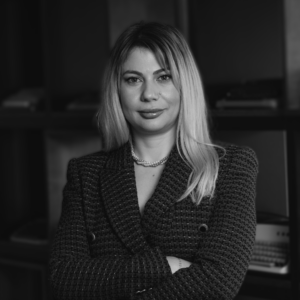 bout your career choice and journey. And what made you decide to get into corporate and commercial law?
bout your career choice and journey. And what made you decide to get into corporate and commercial law?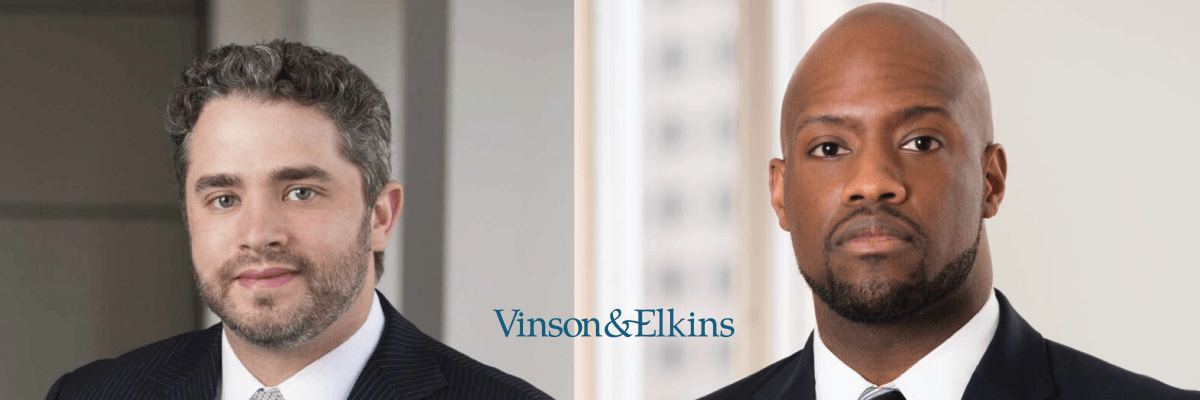
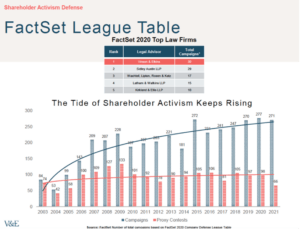
 Who needs to be worried about antitrust and competition law?
Who needs to be worried about antitrust and competition law?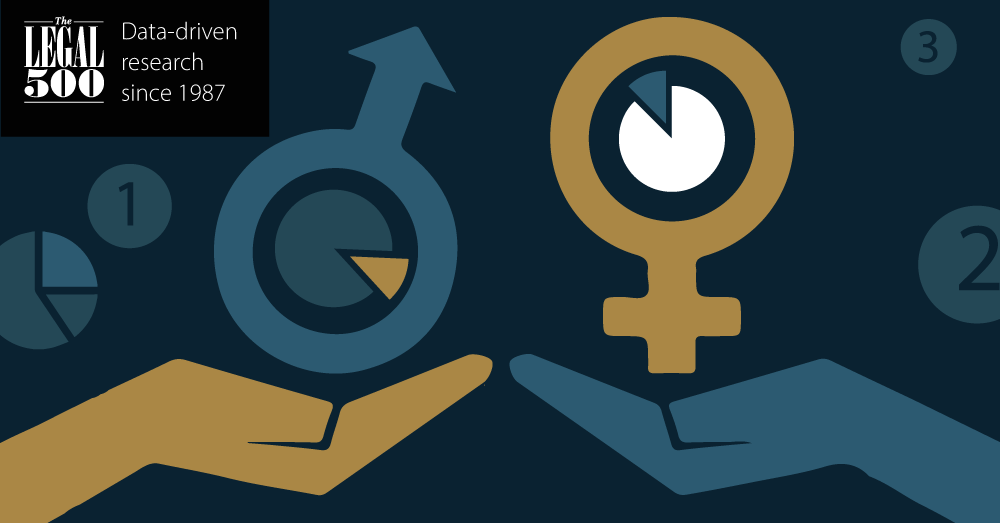
 The Legal 500 Deutschland editor Anna Bauböck puts gender diversity statistics in the latest Deutschland guide under scrutiny
The Legal 500 Deutschland editor Anna Bauböck puts gender diversity statistics in the latest Deutschland guide under scrutiny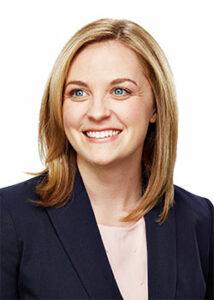 Morgan is an associate at Finnegan, Henderson, Farabow, Garrett & Dunner LLP and co-leads Finnegan’s pro bono service with Community Legal Services in East Palo Alto (CLSEPA) representing tenants facing eviction. She focuses on trademark and false advertising litigation, litigating cases and managing enforcement efforts for some of the world’s most renowned brands. She regularly represents tenants in landlord/tenant disputes through Finnegan’s partnership with CLSEPA.
Morgan is an associate at Finnegan, Henderson, Farabow, Garrett & Dunner LLP and co-leads Finnegan’s pro bono service with Community Legal Services in East Palo Alto (CLSEPA) representing tenants facing eviction. She focuses on trademark and false advertising litigation, litigating cases and managing enforcement efforts for some of the world’s most renowned brands. She regularly represents tenants in landlord/tenant disputes through Finnegan’s partnership with CLSEPA. Ming is the managing partner of Finnegan’s Palo Alto office. Ming also supervises Finnegan’s pro bono partnership with CLSEPA. He focuses on litigating patent and trade secret disputes, counseling clients on licensing and portfolio management matters, and advising on inter partes reviews, opinions of counsel, and IP strategies.
Ming is the managing partner of Finnegan’s Palo Alto office. Ming also supervises Finnegan’s pro bono partnership with CLSEPA. He focuses on litigating patent and trade secret disputes, counseling clients on licensing and portfolio management matters, and advising on inter partes reviews, opinions of counsel, and IP strategies.